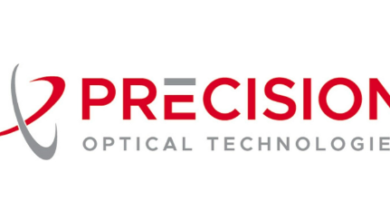Beyond Compliance | Leveraging KYC Software for Enhanced Risk Management

KYC (Know Your Customer) software has revolutionized operational efficiency across diverse systems by streamlining verification procedures. This innovative technology empowers businesses to verify customer identities accurately by enhancing security measures and regulatory compliance. Through robust verification processes such as document authentication, biometric recognition, and identity verification checks. KYC solutions ensure customer information’s authenticity by mitigating financial crime risks. By automating these verification procedures, businesses can significantly reduce manual errors, accelerate customer onboarding processes, and foster stakeholder trust. It is estimated that about ¥6.9 billion were invested in the KYC buying market in 2022. Further studies revealed that this market will reach ¥19.8 billion in the financial year of 2026.
KYC Verification – Comprehend its Implementation in Streamlining Identity Validation
KYC verification allows different industries to validate the identities of the customer for varied use cases like setting up user gaming accounts, completing the onboarding process, and establishing marketplace seller accounts. It is utilized to make financial services and products available. KYC software assists in verifying the customers depending on the risk assessment rating for combating money laundering, terrorist financing, and other related illegal activities. The main objective of launching KYC software is maintaining the financial system’s integrity and complying with institutions’ regulatory measures. These advanced KYC checks review the customer credentials utilizing machine learning algorithms and artificial intelligence.
Augmenting Industries Credibility Through KYC Services
KYC software contributes positively to various financial and other related potential industries by ensuring the checks that enhance the reliability of the institute. It has multiple uses in potential sectors such as real estate, fintech, gaming, and the financial and legal sectors.
- The advancement in the fintech sector has opened various doors of opportunity for their customers. The fintech industry is becoming a new target for imposters to avail themselves of financial facilities. Therefore, advanced KYC verification procedures are ensured for verifying identities through robust measures such as biometrics and optical character recognition.
- Real estate is another potential industry for executing illegal activity such as money laundering. Therefore, it is essential to ensure KYC software to trace out who is investing illegally in the system. Thus, it assists in identifying the imposters who are doing criminal activities.
- The digital gaming industry is vast and requires them to authenticate their users by validating their age, funds origin, location and identifying if they are already involved in illegal activities. It assists in safeguarding both the company and its players by developing trust and ensuring that the user’s provided credentials are secure.
- Potential criminals constantly target legal sectors to assess users’ confidential data for use in illegal activities. Therefore, legal sectors must ensure KYC software to validate their customers.
- Financial institutes such as the insurance and banking industry directly settle with accounts, money, and high-volume transactions. It has an essential level of liability when it comes to combating financial malfeasance. Financial regulations are usually the initial reflection of KYC requirements. Therefore, it is mandatory for all financial services industries to analyze the source of funds and previous records to identify potential suspects in this digital era.
KYC Compliance – Ensure Regulatory Measures in Potential Industries
KYC software is specifically designed based on compliance measures issued by government officials. The verification procedures of manual and digital methods are aligned with compliance in such a way that authentic users are identified in real time, and imposters are reported to authorized persons to combat potential threats such as monetary losses, identity fraud, and terrorist financing in this digital world. There are three major programs for ensuring complete KYC compliance given below:
- Customer Identification Program (CIP)
- Customer Due Diligence (CDD)
- Continuous Monitoring
The customer identification program is a provision of the USA patriot act to verify users’ identities. To accomplish this need, customers must provide their name, date of birth, proof of address, and identification number. Then, these acquired credentials are compared with authorized databases stored in official records within a reasonable time. Meanwhile, customer due diligence is required to detect high-risk customers by executing a significant level of scrutiny. It is done using two procedures, standard due diligence, and enhanced due diligence, to identify the risk score associated with customer profiles. Continuous surveillance is happening in the background to carry out KYC compliance measures. It is ensured that continuous variations occurring in financial transactions are detected. Thus, KYC software provides a complete verification process, ensuring the meeting of all regulatory measures.
Read also Guide to Importing Japanese Vehicles into Botswana
Final Verdict
KYC software plays a vital role in modern businesses by streamlining identity verification processes and ensuring regulatory compliance. Through automation, it reduces the manual effort required for customer onboarding and makes operations more efficient. This software strengthens security measures, mitigates risks, and fosters customer trust. Its ability to seamlessly integrate into existing systems and adapt to evolving regulatory requirements makes it an essential tool for businesses operating in today’s digital landscape.





